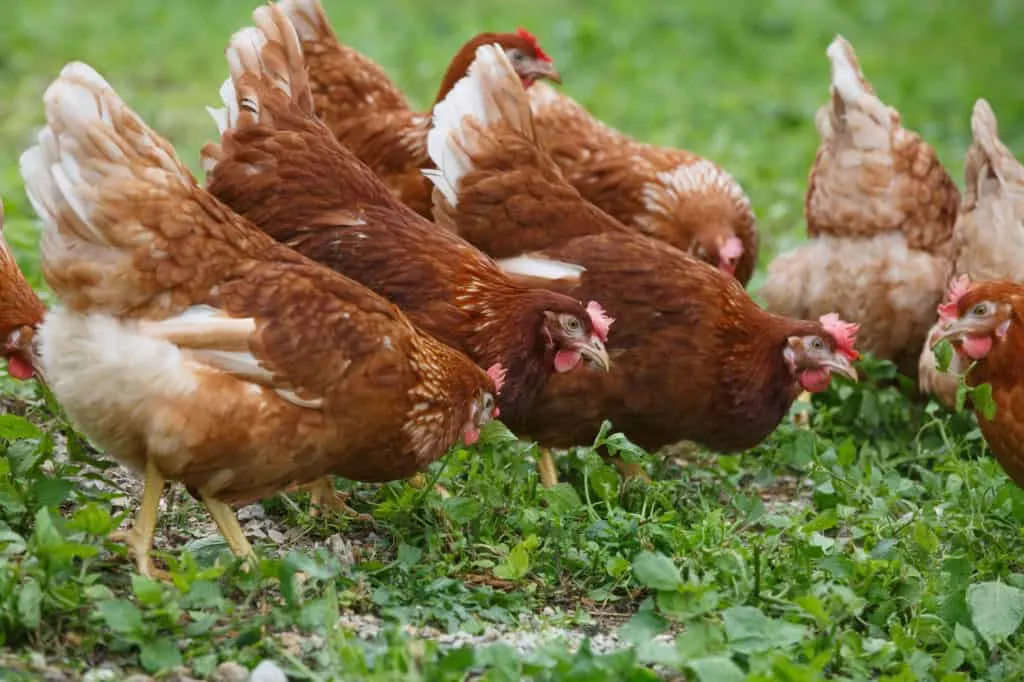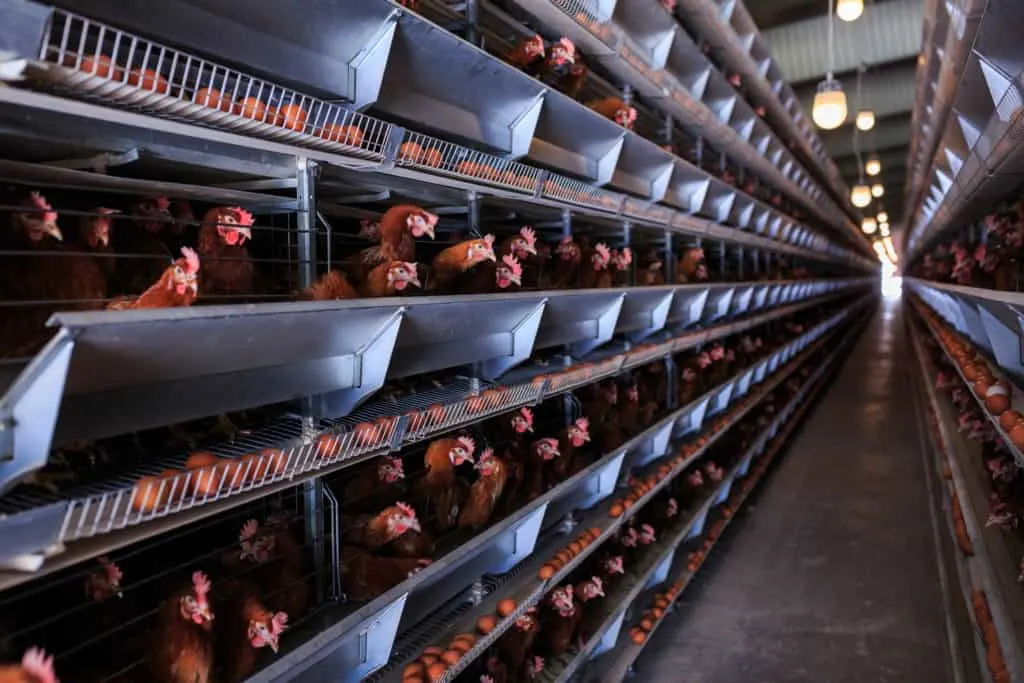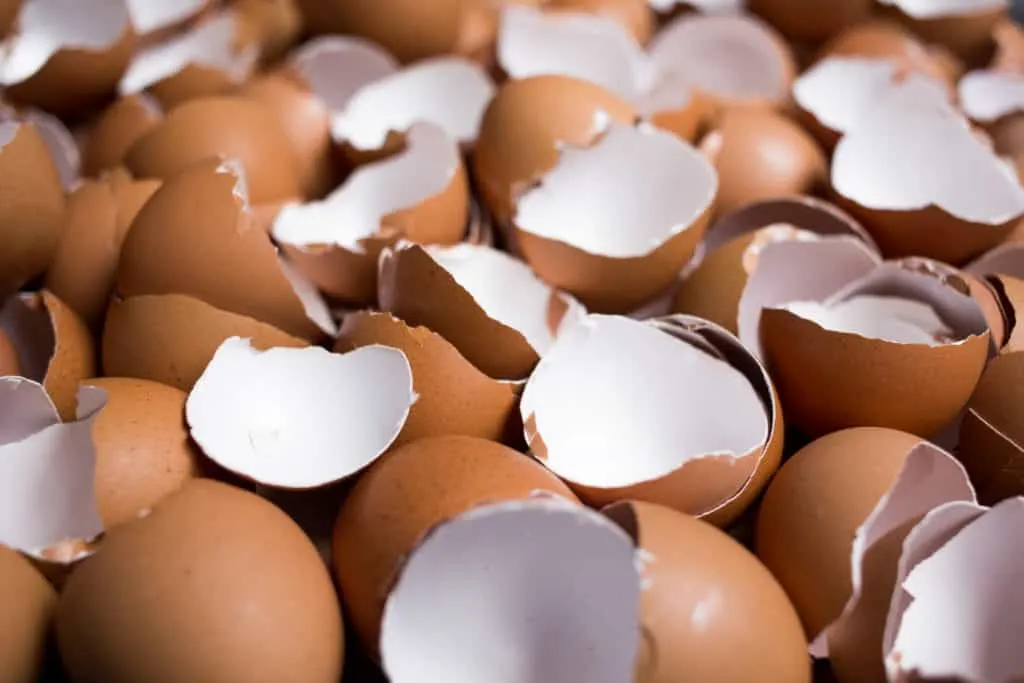
There is a reason that you hear of chicken eggs as being a complete food source. Consider that the contents inside of a chicken egg are complete enough to feed and develop entire baby chicken, in a self-contained shell.
But what about when it comes to feeding raw eggs to our dogs – can German Shepherds eat raw eggs?
It is safe for your dog to eat raw eggs as a supplement to a regular diet. While there are often concerns voiced over salmonella poisoning and biotin deficiencies, statistics show that raw eggs are a safe food for your dog when given in moderation.
Raw eggs are a great source of amino acids, and they also contain a number of essential fatty acids, vitamins A and B12, selenium, riboflavin, and iron.
In this article, we will take a closer look at what kinds of eggs are best for your dog, how often you should feed them, as well as address some common concerns on this topic.
Click Here to Jump to a Section
Organic vs. Commercial Eggs
Before you move on to feeding your dog any type of egg, raw or cooked, it’s important that you understand that any egg that you feed to your dog should be of the highest quality.
All eggs are not created equal, and there is a huge difference in the nutritional quality of commercially raised eggs vs. organically raised eggs.
Organic Eggs

Any poultry farm that is certified organic must comply with USDA regulations. The eggs must come from chickens that have been raised under organic conditions for their entire lives.
Under USDA regulations, organic chickens are required to have regular access to the outdoors year-round. They must also live in a place that gives them fresh air, sunlight, a place to exercise, be provided with clean food, water, and bedding. This high-quality living actually improves a chicken’s immune system.
Organic chickens are given 100% organic feed. The feed cannot include any GMOs or animal by-products like blood meal, tallow, or feather meal. Nor can they be given any hormones or antibiotics.
The USDA also recommends that any physical alterations, like beak and toe clipping, be kept to a bare minimum, and that it’s done in a way that minimizes pain and stress for the bird.
The packaging of organic eggs has to be contaminant-free – no pesticides or chemicals are permitted, as things could contaminate the eggs.
Commercial Eggs

For commercially produced eggs, there are no requirements pertaining to the conditions that the chicken has lived in for any part of its life.
The average commercial poultry farm can have over 20,000 chickens per house, and each chicken on average has only about 8/10ths of a square foot to live on – less than the size of a notebook.
This type of housing is stressful for the birds, and it often results in injuries. The chickens also spend little to no time in the outdoors or in the sunlight.
Commercial feed is based on corn and soy, and it can also include animal by-products and come from GMO sources. None of these are a part of a chicken’s natural diet.
Commercially raised chickens are commonly given antibiotics and hormones. The chickens themselves are put through stressful and painful physical processes, like beak trimming and toe clipping. Conventional eggs have no packaging requirements, and often chemicals are used in their manufacture.
Organic vs. Commercial Eggs – The Final Verdict
The clear winners here are eggs from organically raised chickens. Anytime that you have the opportunity, do not buy a commercially raised egg, as the conditions in which the chickens are raised and the food that they are given produce a nutritionally inferior egg when compared to an organic egg.
And you can clearly see the difference. Do a comparison of the two eggs for yourself – the color of the yolks of an organic egg is a deep rich golden color, while a commercial egg yolk is opaque and pale in comparison.
And because you don’t ever have to give your dog an egg, it’s better to just feed them really a good quality egg every so often rather than regular feeding of commercially raised chicken eggs.
How Often Can You Feed Your German Shepherd Raw Eggs?
While raw eggs should not be the mainstay of your dog’s diet, you can safely feed raw eggs to your dog two to three times per week.
But make sure that you don’t just introduce eggs into your dog’s diet and keep feeding them without first seeing how your dog reacts. Dogs, just like people can be allergic to any number of things. So begin by feeding your dog a single raw egg and see if there is any type of reaction – it’s highly likely that everything will be just fine.
Just beware if after eating egg your dog gets an upset stomach or shows any other type of adverse reaction. Then discontinue feeding and speak with your vet. It may be that your dog is allergic to chicken eggs, but not to other types of eggs.
What Kinds Of Eggs Are Safe for Your German Shepherd?

It is safe to feed your dog a raw egg laid by any farm-raised bird. The most important factor is always the quality of how the bird was raised. But in terms of the type of bird that you get the egg from, the sky’s the limit!
Let’s take a look at a few possible egg sources for your dog.
Ostrich Eggs
While it is unlikely that you have an ostrich in the backyard, feeding your dog an ostrich egg is not out of the question. However, in the unlikely event that you choose to do this, do not feed your dog the whole egg. One ostrich egg is equal to about two dozen regular sized eggs!
Quail Eggs
Though not as common as regular supermarket eggs, quail eggs can be found in a number of different farmers’ markets and specialty stores. It takes 2-3 quail eggs to equal the protein and fat content of a chicken egg, but I assure you that your dog won’t mind!
Goose Eggs
Goose eggs are another type of egg which is not so commonly available to the general public, but they are certainly locatable. And if you happen to have a friend who raises geese or do so on your own, grab an egg for your dog from the next harvest.
Here is an informative video of an experienced dog trainer feeding his German Shepherds a variety of raw eggs:
Duck Eggs
Duck eggs are rather underrated. This is not because people think badly of them, it’s simply because it’s just not generally known what a great source of protein, vitamins and minerals are contained in a duck egg.
Generally speaking, duck eggs contain all of the same nutrients as a chicken egg, except that there’s just more of them.
Here are some duck egg facts for you; they:
- stay fresh longer due to their thicker shells.
- are bigger than chicken eggs and contain 1/3 more protein.
- have a higher healthy fat content than chicken eggs.
- contain more Omega-3s than chicken eggs.
- contain more vitamin D than chicken eggs.
- contain more minerals than chicken eggs.
- contain more vitamins than chicken eggs.
It’s also important to note that if a dog has an allergy to chicken eggs, it can likely safely consume duck eggs. Just be sure to first check with your veterinarian.
Eggshells

As mentioned earlier, eggs are a complete source of nutrition. This not only applies to their contents, but also to their shells.
Did you know that eggshells can make for a great calcium supplement to your dog’s diet? The calcium contained within them is essential to your dog’s overall health, including its nails, teeth, and coat.
Calcium is also required for:
- Digestion
- Blood Clotting
- Squeezing and Relaxing Muscles
- Releasing Hormones; Hormone Transmission
- Proper nerve function
- Maintaining a regular heartbeat
- Bone and cartilage formation
- Good skeletal structure
Follow the steps below to make your own simple calcium supplement for your dog. All that you need are a dozen eggshells and a coffee or spice grinder.
Eggshell Calcium Powder Recipe
- Boil the eggshells to remove any germs.
- Bake the eggshells at 350 degrees for 20 minutes. They should be brittle to the touch.
- Let the eggshells cool, then crumble them into the grinder.
- Pulverize the eggshells into a fine powder.
- Carefully pour the powder into a jar. Avoid inhaling the eggshell dust, as it’s not very pleasant!
This will produce approximately 1/4 of a cup of calcium powder (about 12 servings). Use the powder by sprinkling about 1 teaspoon over your dog’s food a few times per week. This measurement is appropriate for an adult German Shepherd. If your dog is smaller, simply cut down the amount that you sprinkle over your dog’s food.
If you want to save some time and have a microwave handy, you can substitute baking the eggshells in the oven for five minutes in the microwave. But be warned, your microwave and your house will have a very strong egg smell after this!
Biotin Deficiency Concerns
Feeding dogs raw eggs as it relates to biotin deficiencies is a pretty hotly debated topic. So, can feeding your dog raw eggs actually cause a biotin deficiency?
The short answer here is technically yes, though it is highly unlikely. Biotin deficiencies are rare, but they can be induced by eating large amounts of egg whites.
Let’s look at how this works.
Two factors must be present to cause a biotin deficiency to occur through the inclusion of egg whites in your dog’s diet.
- Your dog needs to eat a lot of egg whites – enough to give your dog 50% of its energy.
- A diet that is deficient in biotin. If your dog has a healthy diet, then it is getting enough biotin. It’s highly unlikely that egg whites will disrupt this balance and induce a biotin deficiency.
Biotin deficiencies are so rare, that for the purposes of a study on Biotin deficiency, the deficiency has to actually be induced, as natural cases in animals are just not common enough to study.
For a Biotin deficiency to occur outside of being induced, large quantities of egg whites need to be consumed for a period of months to years. So just make sure that you are not overfeeding your dog raw eggs, and that it is otherwise eating a well-balanced diet.
What About Salmonella?
There is always a chance that when eating a raw egg your dog may be exposed to salmonella.
Salmonella contaminates about 1 in 20,000 eggs. It’s important to understand however that just because your dog may be exposed to salmonella, it by no means that your dog will become ill.
Take a look at your own immune system. You are exposed to millions of germs each day that do nothing to adversely affect your health, provided that you have a healthy functioning immune system.
Compared to your immune system, your dog’s is well – not comparable. A dog’s immune system is immeasurably stronger when it comes to everyday bacteria.
And when it comes to not so common bacteria like Salmonella, dogs have a particular physiology that allows them to remain healthy even if they are exposed to it.
Dogs have a very acidic stomach – much more so than humans. In addition to having a high stomach acid content, dogs also have a very short digestive tract. This serves to prevent any bacteria ingested from lingering long enough to build up and cause an infection.
This allows a dog to eat almost anything it pleases, and many of them do just that! Taking the above factors into consideration means leads to the conclusion that eating a raw egg is highly unlikely to have any adverse health effect on your German Shepherd at all.
Final Thoughts
As discussed, it is perfectly safe to feed your German Shepherd raw eggs as long as you do so in moderation.
Also, remember that a chicken raised in a high-quality environment will produce a high-quality egg, and that the opposite is also true. So be picky for your dog’s sake, and only ever feed it organic eggs.
And if for any reason your dog does have a reaction, remember to discontinue feeding and contact your veterinarian. The problem may just be the type of egg, and not eggs in general.
